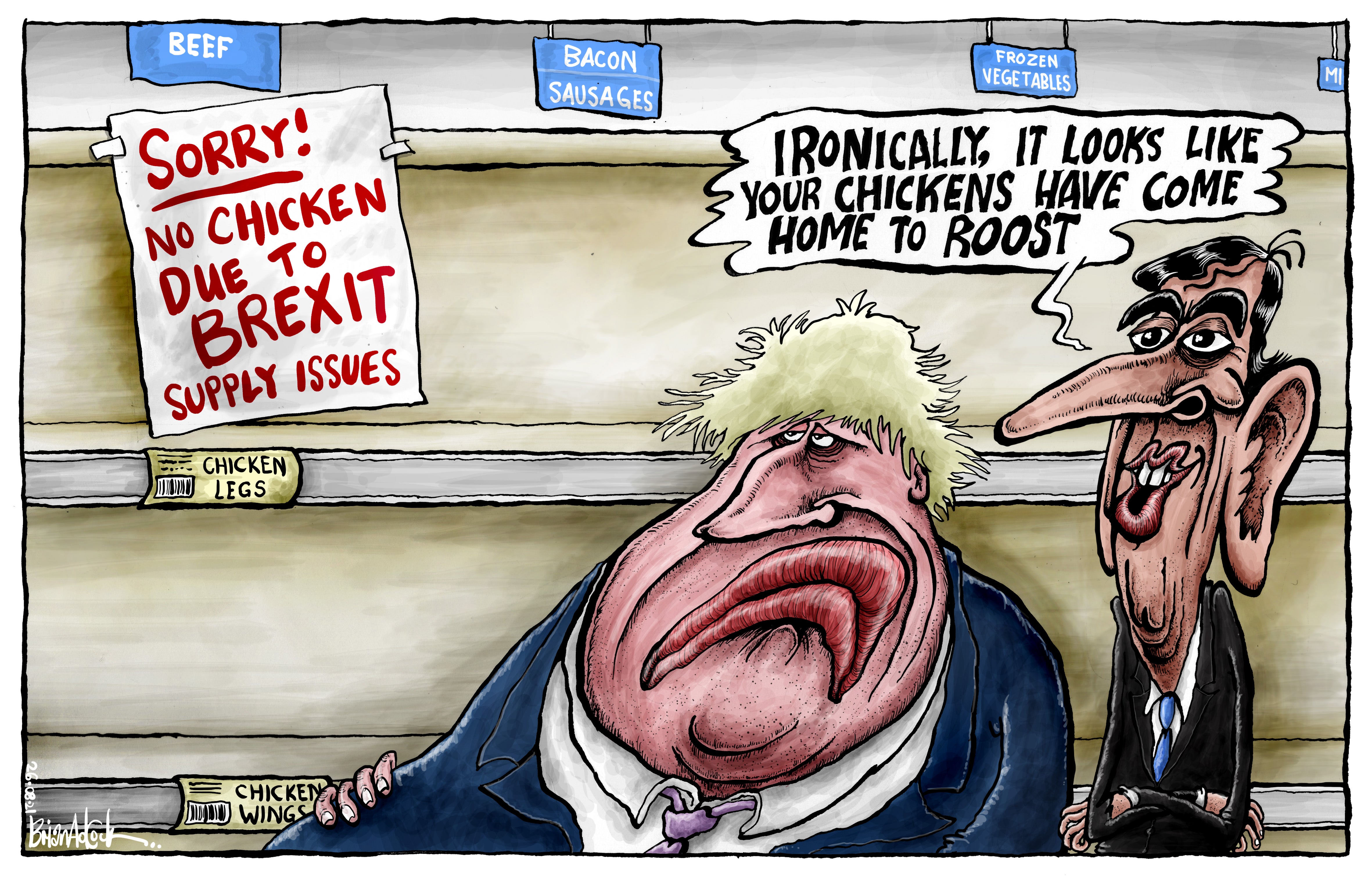Lorry driver shortages are not solely the result of Brexit – but it certainly hasn’t helped
Editorial: There are a number of other reasons why the UK faces an issue over HGV drivers, but the way we left the EU was the straw that broke the back of the Great British supply chain

The shortages affecting popular restaurant chains and now Iceland shops are not solely the result of Brexit, but the way in which we left the European Union has undoubtedly made them worse.
Other European countries are suffering a shortage of lorry drivers, but other European countries have not run out of milkshakes and are not discussing drafting in their armies to help move essential goods. In Britain supermarket bosses are already warning that the shortage of heavy goods vehicle drivers could “cancel Christmas”.
There are a number of non-Brexit causes of the problem. The labour market for hauliers was highly competitive to start with, with low wages ensuring that there was little slack in the system to cope with disruption. Thus when Covid-19 struck it affected test centres, slowing down the issue of new licences, as well as taking some drivers off the road – although they were soon exempted from isolation requirements. This happened to coincide with a change in the tax treatment of lorry drivers setting themselves up as limited companies, which further reduced their incomes.
Then came Boris Johnson’s hard Brexit, bringing in new paperwork (or computer work) from 1 January this year. Anecdotally, some of the central Europeans have stayed at home because of coronavirus, because this problem has also been reported in Germany and France, but in Britain we have the trade frictions that were an intended feature of Brexit to contend with in addition. It is the Brexit straw that has broken the back of the Great British supply chain.
When The Independent reported for years beforehand on the likely consequences of Brexit – and particularly on Mr Johnson’s form of it – we tended to use phrases such as “trade friction” and “supply chains”. Although we sometimes tried to make these abstractions more vivid by describing them as “empty supermarket shelves” and “higher prices”, Leave supporters tended to dismiss such warnings as “Project Fear”. Well, “Project Slightly Anxious” has now materialised.
The question is what to do now. The government has taken the obvious short-term panic measure of extending lorry drivers’ legal hours from nine to 10 hours a day, and is trying to get HGV test centres to clear the backlog so that more drivers can be recruited. But the obvious medium-term solution is to allow the market to work. Lorry drivers’ wages need to rise so that our essential transport networks are no longer so dependent on imported labour from low-wage countries in central Europe.
At this point, expect the advocates of Brexit to declare triumphantly that this was one of the great benefits of leaving the EU that they had wanted all along: higher wages. Unfortunately for them (and for the rest of us), it is not as simple as that. Wages needed to rise in the transport sector anyway, and that could have happened in the EU just as well as out of it. In the Netherlands, for example, unions and employers have just agreed higher pay and better conditions for lorry drivers – and the country did not need to impose on itself all the additional costs of leaving the EU to do it.
It may be that in a few sectors of the UK economy wages may rise temporarily as an adjustment to Brexit, but overall the costs of leaving the EU are going to outweigh such gains. We are all in favour of paying British hauliers more, but in the end Brexit is only going to cost us all dear.
Join our commenting forum
Join thought-provoking conversations, follow other Independent readers and see their replies
Comments